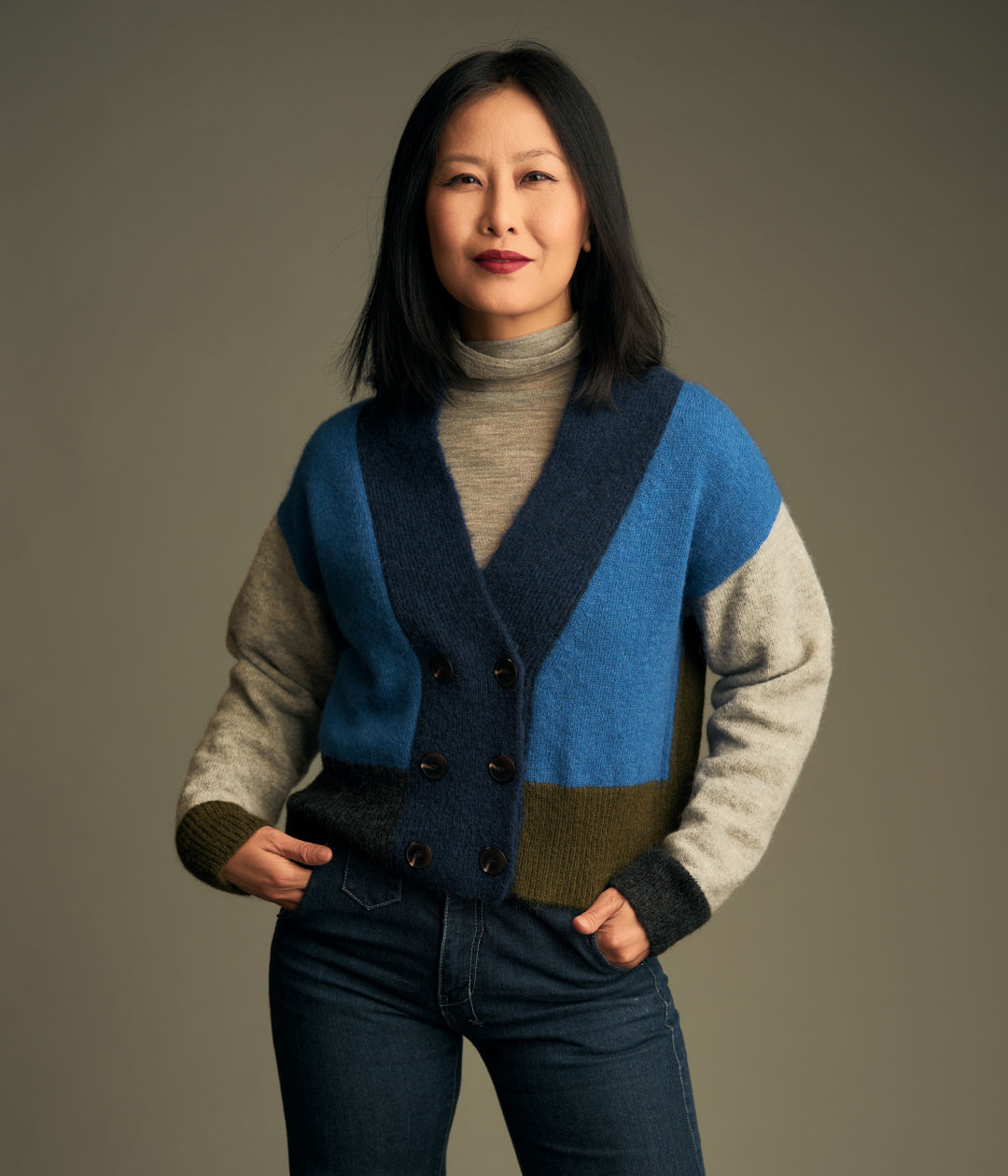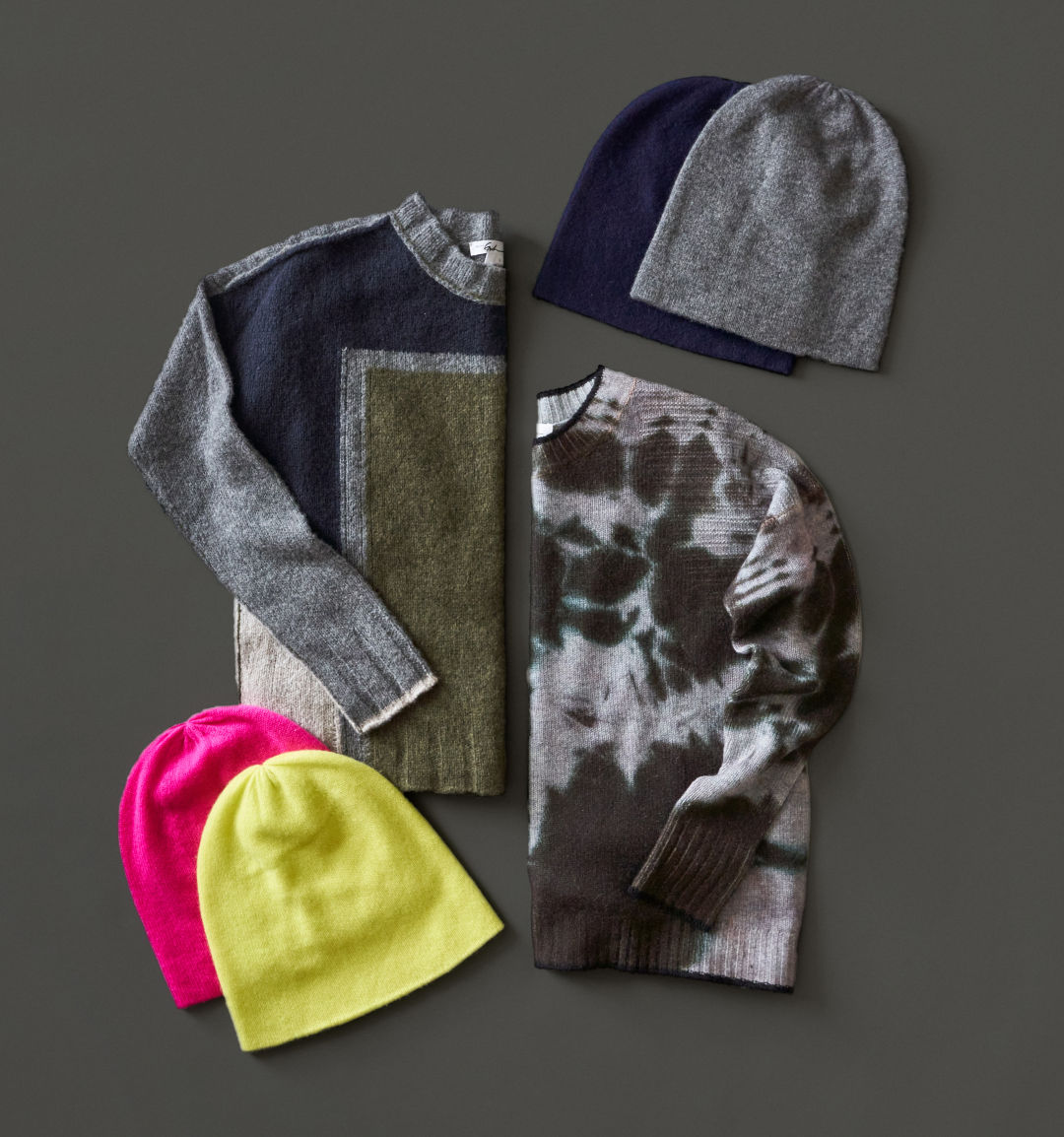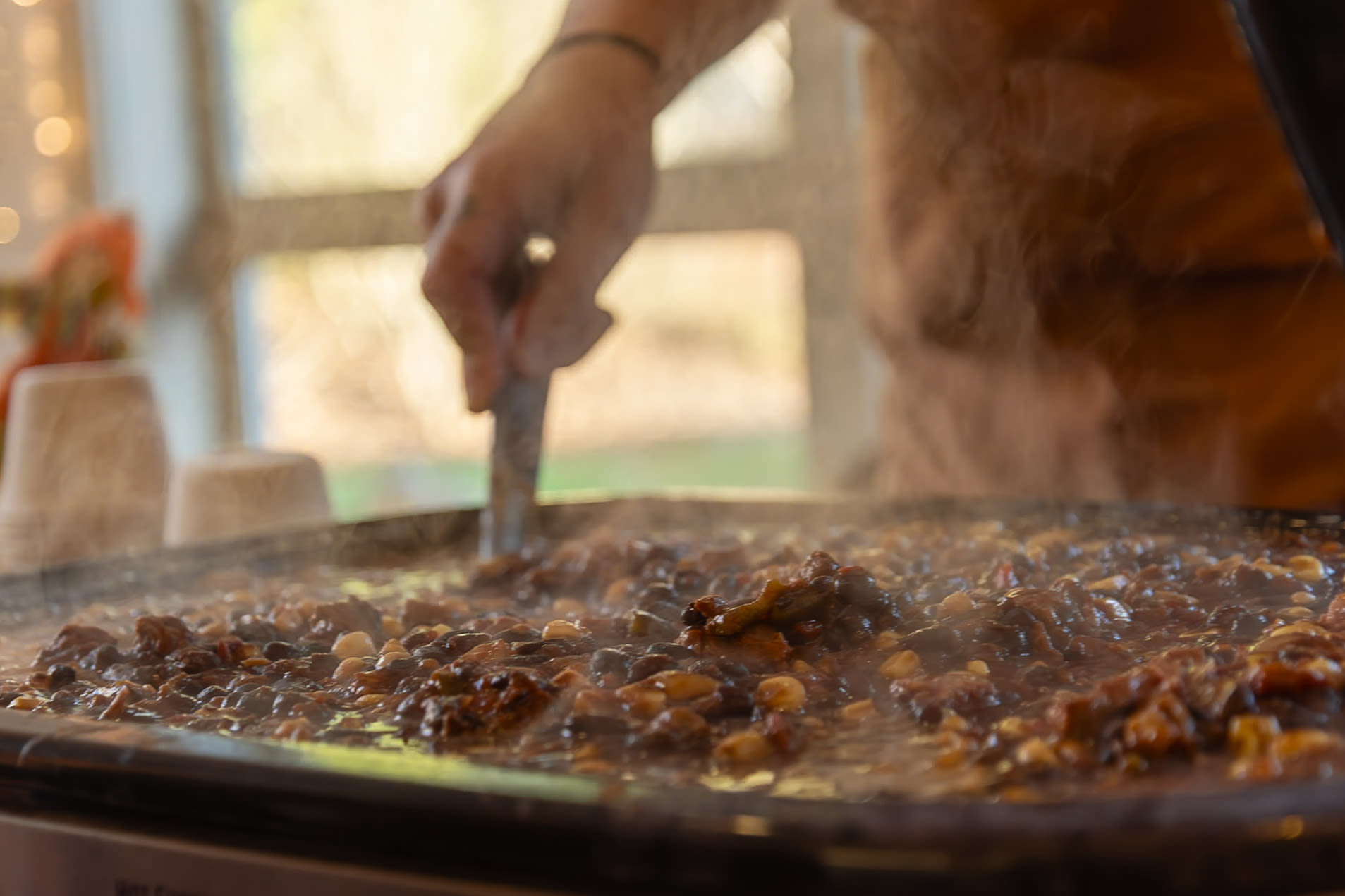These Seattle Brands Make Sweaters Better

Wrap neck jumpsuit in hunter ($545) and reversible double knit coat ($725), Sskein.
Vira V-neck ribbed dress in beet marl ($565), Sskein.
Grando V-neck vest in camel marl ($425), Tate quarter-zip pullover in camel marl ($545), and Tidal wrap skirt in camel and climate gray heather ($765), Sskein.
Image: Carlton Canary
Sskein
Elisa Yip has a wealth of experience designing knitwear: She first tried it while studying abroad in Italy in the ’90s, working on a Brother hand-knitting machine. Then as an assistant knitwear designer for Liz Claiborne, a student learning under master knitters in Hong Kong, and a senior winter accessories designer for Nordstrom. All before launching her own line of luxury knitwear, Sskein, at the end of 2020.
So when she tells you that alpaca wool is the next big thing in sustainable luxury, you listen.

Elisa Yip centers sustainability, but she’s not on her high…er, alpaca?...about it.
Double closure color block cardigan in navy multi ($425) and T-neck pullover in fog gray heather ($375), Sskein.
Image: Carlton Canary
“I fell in love with alpaca when I learned about it,” Yip says. That love led to something of an obsession. She can tell you that the minuscule, hollow fibers in the animal’s coat trap heat and shed water; that alpacas’ padded hooves make them especially gentle on grasslands; that the Peruvian farm Sskein sources from allows the animals to graze freely until it’s time for their summer haircut.
But it’s Yip’s work to ensure her garments won’t get tossed out with the trend cycle that makes them truly sustainable. Yip’s understatedly elegant designs expand the idea of what knitwear can be, from a sophisticated bodysuit that’s ideal for layering to a light cotton pullover made for chilly summer nights. They’re also versatile—the kinds of pieces that would look completely at home in any closet. Especially Yip’s. If “I don’t love it, there’s no reason to produce it,” Yip says. “And I need to be obsessed with it.”
Early in the design process, Yip asks herself what her customer “needs in her wardrobe that will elevate it,” find its way into frequent rotation, and last a lifetime. She answers with luxury knitwear that retains its quality, defies trend cycles, and feels “like getting a hug from an alpaca.” It’s hard to argue with that.

Dreamy block crew in thunder and moss ($558), tie-dye crew in jade multi ($548), slouchy beanie in fuchsia, neon, navy, and thunder ($118), Paychi Guh.
Image: Carlton Canary

Karen Paychi Guh
One inspiration? Cashmere from cloudlike (and huggable) Mongolian mountain goats.
Image: Jane Sherman
Paychi Guh
Karen Paychi Guh still remembers the first time she touched cashmere. She was in her twenties, and she thought to herself, “One day, if I could afford this, it’s the only thing I’d want to wear.”
In 2012, when her position as design director at Nordstrom was eliminated, Guh could have found another role at the Seattle-based department store where she’d worked for the past 14 years. Instead, she took a chance on starting her own business, centered around the lightweight goat wool she’d fallen in love with. “I always wanted to try,” Guh says of breaking out on her own, “but never had the guts to quit.”
Guh rented a tiny London dorm room and immersed herself in a five-day intensive to brush up on her design skills and realign herself with what exactly she—not her former fashion giant employer—wanted to create. The teachers there “really push you not to look at trends,” but to get out “to the park, the street, the museum, and find inspiration you only see through your eyes.”
What inspired her: architectural shapes, Sedona rock formations, tree branches, clouds—and the ultrafine, worsted cashmere material that comes from cloudlike Mongolian goats, which she’s hugged herself. She understands that she’s at a certain disadvantage compared to bigger brands that drive down costs by producing garments in quantity. “You cannot be cheaper, so I just pick what I love,” Guh says.

Reversible color block vests in black and gray and in magenta and oatmeal ($518 each), Paychi Guh.
Image: Carlton Canary
Paychi Guh, her eponymous line of loose, asymmetrical shapes, luxury T-shirt-like construction, and bright, abstract color combinations, celebrates its 10th anniversary this year. Guh has stayed remarkably true to her original vision. She even uses the same yarn she did when she was rejected from her first trade show—though now buyers show up to industry events rocking her designs. “I’m so spoiled now,” Guh says, “because I cannot wear any other things.”




